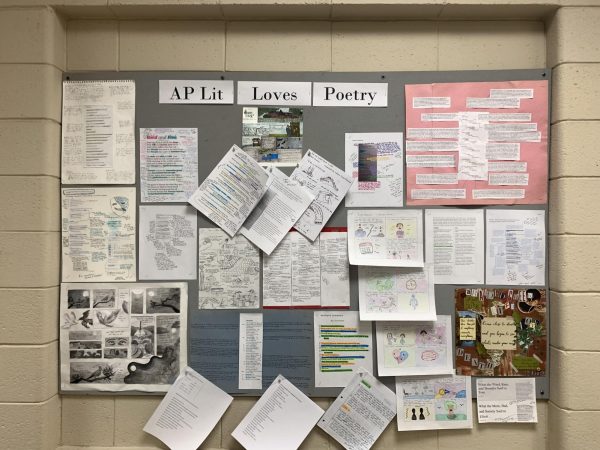Final Exams: Tips for Studying

As the first semester ends, final exams approach. This year, final exams will take place the week of January 27th. The schedule is as follows:
Monday, January 27th – Elective Exams given during regularly scheduled classes throughout the day.
Tuesday, January 28th – World Language and English Exams given during regularly scheduled classes throughout the day.
Wednesday, January 29th – Math and Science Exams at the following times:
Math Exam – 7:30 AM – 9:00 AM
Science Exam – 9:15 AM – 10:45 AM
Thursday, January 30th – Social Studies and Make-Up Exams at the following times:
Social Studies Exam – 7:30 AM – 9:00 AM
Make-Up Exams – 9:15 AM – 10:45 AM
Don’t worry. Breathe!
Here are just a few tips on how to study more effectively.
DO: prepare ahead of time
If you know you have a big final coming up in a couple of weeks with a lot of content, it is smart to plan how much you want to study each day up to the test.
Make a timetable with the exam date being the last day so you can see how much time you have and what you need to do. You can plan out what you want to study and manage your time more efficiently.
Keeping a planner helps you keep track of everything you need to do and makes you feel productive and accomplished when you finish.
DO NOT: procrastinate
Well obviously.
But, more specifically, when you get home right from school, start your homework and study right away!
Saying you will “do it later” only pushes the task away from you until you’ve started too late. Plus, with starting things as soon as possible, it gives you more free time in the future and you will not have to worry about the things you need to do.
Also, it’s not smart to set alarms of when to begin working. Your mind will start to focus more on the clock instead of actually studying.
You’ll look at the clock thinking, “It’s 4:02, I guess I should start at 4:30 now.”
This technique prevents you from getting anything done and only wastes time.
Do: take breaks
This tip is highly underrated.
Most people think it is better to hash it all out with studying for hours. But it actually becomes counter-productive because your brain stops producing the same quality of focus and work after some time.
Taking breaks is a good thing.
Maybe not checking Snapchat every 10 seconds, but well-earned breaks are good for your brain- it gives you some time to rest. The brain can do only so much thinking before your work slowly declines in quality.
Do: take notes qualitatively
If you have to read a textbook for class or you’re studying, it’s a great idea to take notes while you read.
Your brain absorbs the information better as you write it down, and you will actually remember it for later.
It is not smart to write every single word in the textbook though. Write down the big ideas and important vocabulary for the different sections in the textbook. Try to find words or terms that seem more important to grasp the key concepts of the topic.
Most teachers have already shifted to Canvas and/or OneNote, so you can search through those applications to view PowerPoint lessons or documents that may be useful.
Do: Make a list
On a computer or a piece of paper, you can write everything you know about a topic and see how much you can recall. After you think you have written everything you know, check it with the actual notes and compare what you got right and wrong.
This is a great way to see what you are proficient in as well as what you possibly need to study or review more.
Do: talk it out
If you have a new concept that you are trying to memorize or are just understanding it, explaining it to another person really helps.
The more you can talk and explain about the topic, the more you realize you actually know about it. And if you are reviewing for a test, you should reread over the notes you wrote then go find someone to explain it to.
You can ask a friend to develop questions based on the content of the course. They can also quiz you on those questions or different terms.
It will likely be more effective if you study with a friend in the same class so you both can study the right information and assist each other.
Talking to family members, pets, or even yourself in the mirror are great options as well.
Do not: have your phone near you
Phones are the biggest distractors in the world.
It doesn’t count as studying if you end up checking Instagram or Snapchat every other minute.
Put your phone somewhere you know you’ll be too lazy to get up and grab it. You will be more productive without your phone!
Do: Listen to music
Listening to music helps the mind concentrate better on the work. This may not work for everyone, as everyone is different.
I recommend classical music- it does not have any words or catchy rhythms that pop – so it will not be a big distraction when you study. Some people find classical music soothing to listen to when they study.
Studies have shown that listening to classical does not not actually make the person studying any smarter, but it raises dopamine levels and makes you happier.
So, at least you will be happier when you study for a boring test.
Do: Utilize Websites
There are many great tools online to help you study for assessments. Quizlet is a popular website because of its variety of features, including flashcards, practice tests, and games that will tailor you to terms that seem more challenging.
Khan Academy is also a great resource. Khan Academy contains videos, practice questions, and tests to help you prepare for that subject. From math to physics to English, there isn’t much better of a resource than Khan Academy.
Do: eat healthy and drink lots of water
It is not a good feeling when you have to sit through a test and you have a ginormous migraine because you didn’t eat or drink something beforehand.
Remember to take care of your body. Eat a healthy, nutritious breakfast and bring a water bottle to school so you do not forget to drink water. You need the energy to focus for your exams!
Do not: stay up till 3 am
Staying up late in the night, or the wee hours of the next day is not healthy.
Your body needs rest, and without the proper amount of sleep, you might actually do worse on the test despite the extra studying.
The night before the test, it is important to study as much as possible, but it is also important to go to sleep early so you wake up the next day feeling fresh and confident.
Do: believe in yourself
Yes, its cheesy, but if you feel like you’re not going to do well as you walk in, you probably will not.
Make sure you go into the exams with confidence, as this will boost your mentality while taking the exam.
And don’t forget those #2 pencils!
Although there are many more ways to study and prepare, these are just a few suggestions you can apply to your studying habits. Good luck with your final exams South!










